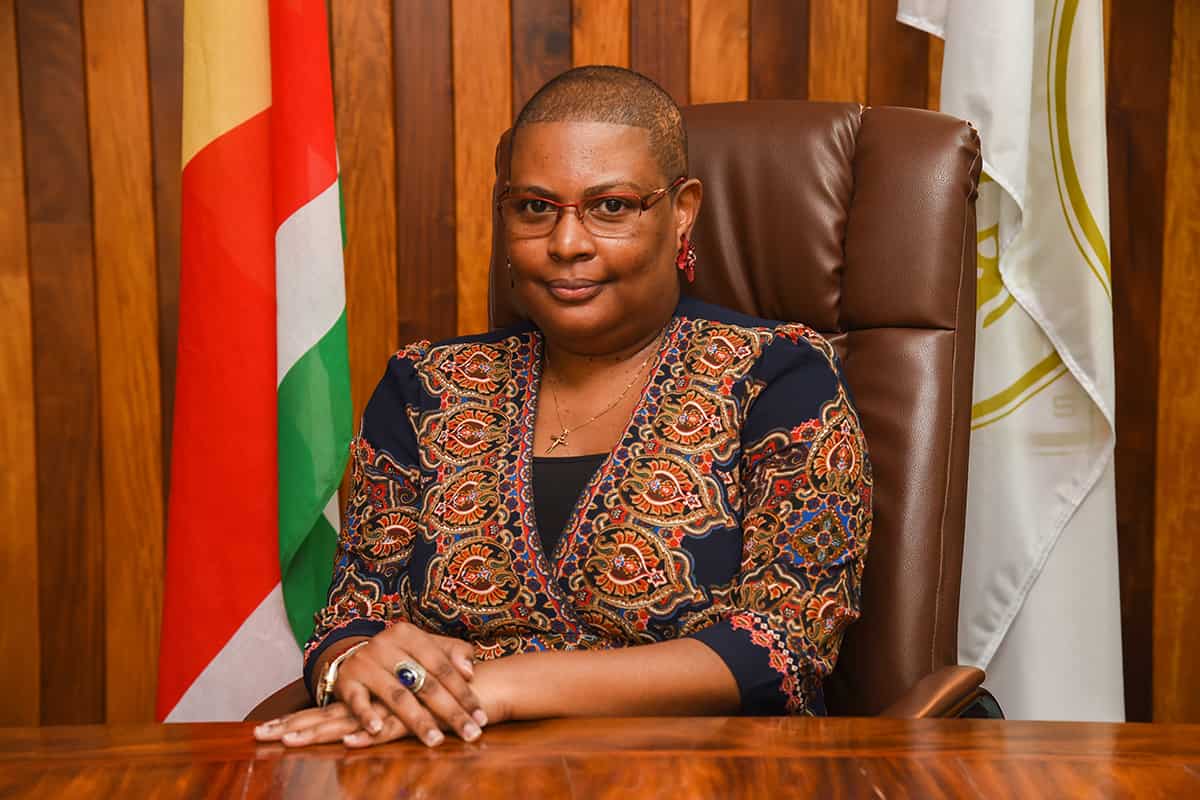Seychelles' central bank governor Caroline Abel tells Global Finance that the central bank of Seychelles will focus on diversifying the economy after the pandemic passes and in the meantime is focused on stopping currency speculation.

Global Finance: How are banks in Seychelles connected to the global financial network and what are the major advantages accruing from the central bank’s policies in as much as positioning in the global financial system is concerned?
Caroline Abel: Seychelles is a small open economy, inherently dependent on international trade. As such, the domestic banking sector is the main conduit through which trade transactions are conducted, with banks being the facilitator of import and export payments. This requires access to the global network of correspondent banks. In addition, the country is home to subsidiaries and branches of several foreign banks, which connect the domestic financial system to the global network through linkage with their parent companies. Cognizant of the increased emergence and reliance on technology, CBS is being assisted by the World Bank to develop a national Fintech strategy to tap into the vast potential of financial technologies. Furthermore, CBS is exploring alternative sources of financing, such as green finance and Islamic Banking, to tap into new opportunities that are emerging globally.
GF: What are the biggest challenges you are encountering as a central banker and what is your approach to interest rate policy and inflation targeting and briefly explain the exchange rate regime the bank is pursuing?
Abel: CBS is currently focused on responding to the COVID-19 crisis. From an economic perspective, one of the main challenges is coming up with the right policies – which are likely to be unconventional given the unprecedented economic environment – to support economic activities and lessen the adverse impact of the pandemic on the economy. From a financial stability point of view, the challenge is to ensure that the financial sector can continue supporting the real economy while ensuring the financial soundness of the financial institutions.
A mixture of strategies, ranging from unorthodox policies and interventions to influencing behavior change are being employed to achieve this balance. Whilst promoting domestic price stability remains the primary objective of CBS, since the second quarter of the year, monetary policy has been accommodative, in support of a lower interest rate environment to alleviate future stress on borrowers.
Monetary policy has been loosened – through a total reduction of 200 basis points in the Monetary Policy Rate (MPR) – to alleviate the short to medium-term effects of the COVID-19 pandemic on the domestic economy, including its adverse implications on economic growth, financial stability and social coherence. Seychelles has a free-floating exchange rate regime, which has served the country well during this challenging period as it is playing its expected role of automatic stabilizer.
GF: How are you handling growing scrutiny over illicit financial flows and tax evasion measures by companies from around Africa especially in light of concerns that they use some Seychelles companies and banks for tax avoidance?
Abel: As a country, Seychelles has strongly highlighted its commitment to strengthen its AML/CFT framework in line with international standards. A high-level National AML/CFT Committee (NAC) has been established to allow for coordinated efforts between relevant authorities and institutions to formulate and implement effective AML/CFT policies. These efforts are being guided by the newly launched national AML/CFT Strategy that articulates five key strategic objectives, linked to combatting money laundering, financing of terrorism and proliferation financing, supported by a set of actions to be implemented by 2023.
New laws also require banks to keep abreast of information available on a particular country, company or person to deter illicit financial flows and other criminal activities such as tax evasion. This approach, imposing greater scrutiny on transactions, will ensure the legitimacy of funds flowing through the financial system.
GF: What global financial and economic risks do you consider a threat to your role and that of the central bank you lead and additionally how is the Central Bank of Seychelles planning for the post COVID-19 pandemic period and what do you believe have been its effects on the banking sector?
Abel: The global environment remains uncertain and with the constantly changing dynamics, it is not easy to predict when the economy will fully recover. CBS endeavors to promote diversification of the Seychelles economy post-COVID-19, a process which will undoubtedly require substantial planning, structural economic changes and a collaborative effort at both country and sectoral levels. COVID-19 has significantly weakened the banking industry due to the fact that the resulting economic slowdown has led to a deterioration in asset quality and negatively impacted banks’ profitability.



